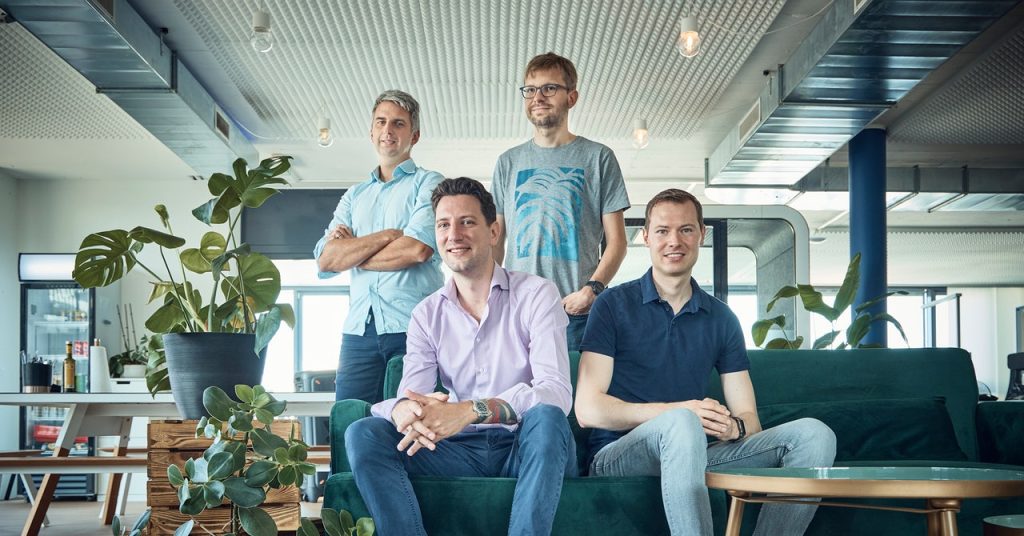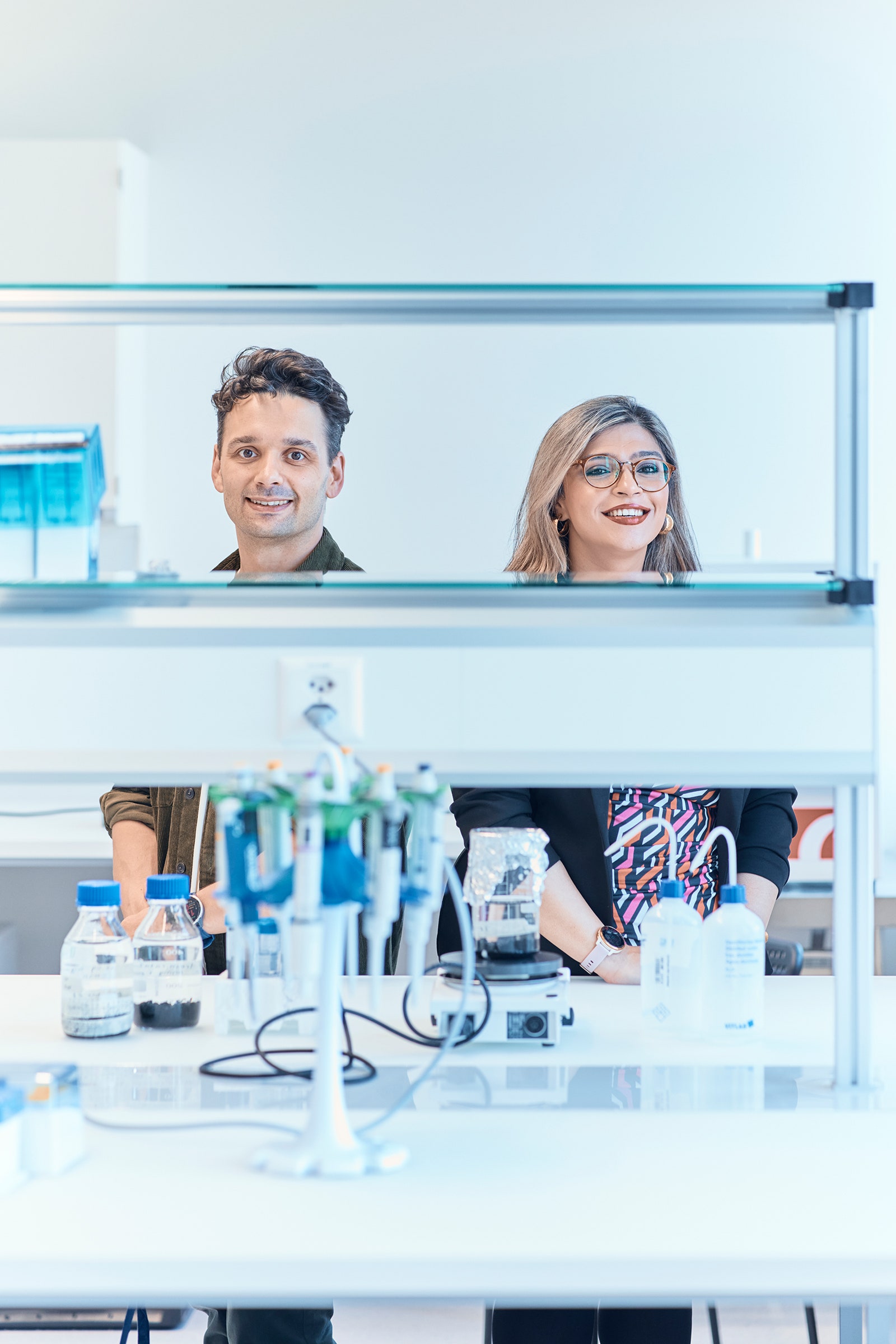Home to fine cheese, breathtaking scenery and footballing politics (FIFA HQ overlooks Lake Zurich), Switzerland’s largest city is also a financial juggernaut. The central square of Paradeplatz is its beating heart, where the Swiss banking system pumps venture capital funding into a thriving tech ecosystem; around CHF 872 million (more than $1 billion) was poured into Zurich startups alone in 2023.
Fintech is a natural major player, but if the banking industry is the ecosystem’s engine, innovation is its fuel. Many of the city’s most exciting startups began life as student projects at its world-leading universities, which provide a steady flow of great thinkers.
“Zurich is a city of ideas, people, and capital,” says Frank Floessel, head of entrepreneurship at ETH Zurich, a public research university focused on science, technology, and engineering that “spins out” an average of 25 startups every year. “We have plenty of talent and know-how. We rank among Europe’s smartest and most innovative cities. And we have the necessary funding to transform groundbreaking ideas into market-ready solutions.”
Nanoflex Robotics
While remote surgery isn’t yet common, scalpel-wielding robots can often be found performing keyhole surgery. Nanoflex Robotics is aiming to transform emergency treatments such as a thrombectomy, the removal of a blood clot. It’s the procedure used for ischemic strokes, a worldwide leading cause of disability. “Today, the only option is to transfer the patient to a hospital capable of performing a thrombectomy—but every second the brain lacks oxygenated blood, brain cells die,” says Nanoflex founder Matt Curran. In the US, nearly a third of the population lives more than an hour away from a thrombectomy capable center. Alongside founders Christophe Chautems and Bradley Nelson, Curran has created a compact robotic platform that includes a magnetic field generator on wheels. Positioned next to a patient’s head in a cath lab, a neurosurgeon (often working miles away) can subtly change the direction of the magnetic field to bend the tip of the catheter more easily, travel through affected vessels, and restore blood flow to the brain. In 2023, Nanoflex worked with Mayo Clinic Arizona on its proof-of-concept—the medical center’s chair of neurosurgery controlled its robot in Zurich from Phoenix in a non-clinical setting. In March 2024, Nanoflex’s first robotics system was installed at the Jacobs Institute, a medical device innovation center in Buffalo, New York. It raised a total of $19.8 million (£14.4 million)—including a $12 million (£9 million) Series A round in February 2023. nanoflexrobotics.com
BTRY
The standard lithium-ion battery contains liquid electrolytes which work well at stable room temperature but less so in the freezing cold or at high heat. Working at Swiss research institute Empa, Moritz Futscher and Abdessalem Aribia discovered that stacking several thin-film cells on top of each other not only provides one-minute charging times and greater energy capacity—it also creates a battery that can withstand extreme conditions. Launching BTRY in 2023 alongside Yaroslav Romanyuk, Futscher and Aribia are now focusing on IoT applications in environments such as cold medical transport and steam plants. The trio are also looking to the skies: Some aerospace applications require batteries to function across a 200 degree Celsius temperature range. “Compared to current batteries, ours reduces the need for heating elements and safety measures,” says Futscher. Having raised CHF 1.8 million ($2.1 million) in pre-seed funding, BTRY is beginning its first pilot production tests. btry.ch
Yokoy
Frustrated with the tedium of corporate expense management, five accountants—Philippe Sahli, Thomas Inhelder, Lars Mangelsdorf, Devis Lussi, and Melanie Gabriel—founded Yokoy in 2019 (initially under the name Expense Robot). The fintech leverages AI to simplify invoicing, automating the reimbursement process by instantly matching card payments with expenses. “We felt the pain of manual work,” says Sahli. “Nobody trains as an accountant to spend hours matching receipts to company card transactions.” Twenty million expense reports and invoices later, Yokoy’s 700 global clients include Breitling, Austria Airlines, and On Running—the Swiss sportswear brand has slashed its costs by almost 79 percent since automating its spend management process, says Sahli. In 2023, Yokoy raised $80 million (£60.9 million) in Series B funding, led by Sequoia Capital. yokoy.io
BreezeLabs
BreezeLabs founders Patrick Helfenstein and Matthias Heuberger say that up to 90 percent of runners in the US—estimated to be about 50 million—use a wearable device to track their performance. Yet heart rate is typically the only measurement that these devices track. BreezeLabs has developed an app that monitors runners’ breathing patterns instead. It does this through a headphones’ built-in microphone, while delivering deeper cardiovascular insights. BreezeLabs’ smart filtering dampens traffic noise, with audio data fed to a trained machine learning model that estimates a runner’s breaths per second. Since launching in February 2023, it’s collected data from more than 100 test runners (“one of the world’s biggest datasets entirely consisting of breathing samples,” says Helfenstein). BreezeLabs has secured CHF 500,000 ($584,000) in funding from the University of Basel. breezelabs.ai
Univerbal
When coder Philipp Hadjimina was priced out of one-to-one Greek language lessons (“incredibly expensive in Switzerland,” he says), he built his own chatbot. Quazel launched on Hacker News in September 2022—and 50,000 users tried it within two days. Renamed Univerbal in January 2024, it had more than 250,000 downloads. Users can talk to an AI “tutor” in 22 languages through onscreen chat prompts, creating naturalistic, unscripted conversations based on large language models from Anthropic, Google, OpenAI, and Open Source. “It’s always surprised me that most who want to learn a language do so via vocab games and memorizing grammar rules, but completely neglect speaking,” says Hadjimina. Founded alongside Samuel Bissegger and David Niederberger, Univerbal has raised $2 million (£1.5 million) in seed funding. univerbal.app
Oxyle
“Clean water, down to the last drop” is the mission statement of Fajer Mushtaq and Silvan Staufert, the founders of Oxyle. Launched in 2020, the ETH Zurich spin-off takes aim at per- and polyfluoroalkyl substances (PFAS): synthetic chemicals long used in everyday goods for their water, grease, and oil-resistant properties—and toxic to humans. “We’re driven by a shared vision to address water contamination and ‘forever chemicals,’” says Mushtaq, whose inspiration stems from encountering water scarcity during her upbringing in India. Common among nonstick cookware and water-repellent fabrics, PFAS exposure has been linked to cancers and immune system suppression. They’re also lost into wastewater and discharged into streams—ending up in drinking water. But Oxyle’s modular reactors—applied at water treatment plants and reaching up to 100 cubic meters in size—break down 99 percent of PFAS into harmless mineral components, lowering levels below regulatory limits. Machine learning then adapts treatment to real-time PFAS fluctuations. Since raising CHF 12 million ($14 million) in pre-seed funding, Oxyle has partnered with major water technology companies in Europe (including Belgium’s Waterleau) to commercialize its solution. Its future target is helping to clean US waters. oxyle.com
DeepJudge
A trio of Google researchers are the minds behind DeepJudge: an AI-powered search for legal teams that scans hundreds of millions of documents, freeing time spent searching for paperwork accumulated across emails, memos and contracts. “We’re connecting users to the entirety of their collective knowledge,” says Paulina Grnarova, who launched the startup in 2021 alongside Yannic Kilcher and Kevin Roth. Retrieval augmented generation (RAG) technology—and DeepJudge’s proprietary large language model—surfaces the most relevant, up-to-date information via summary. Once deployed, nearly 80 percent of users within an organization regularly engage with DeepJudge—saving countless hours trawling inboxes. In June 2024, it raised $10.7 million (£8.1 million) in an oversubscribed seed funding round led by New York private equity firm Coatue. Clients using the AI-powered search tool include Swiss law firms Lenz & Staehelin and Homburger. deepjudge.ai
Decentriq
Data clean-rooms offer neutral, secure environments for organizations to share insights on markets and customers without sharing first-party data—any personal information is restricted, encrypted, and anonymized. A supplier of this is Decentriq. Its platform has been used by Publicis Groupe, Switzerland’s Federal Department of Defense and the Swiss National Bank. “We wanted to create a neutral space—a ‘Switzerland of data’,” explains Decentriq founder Maximilian Groth, who launched the startup alongside Stefan Deml in 2019. The pair have raised more than $21 million (£15.9 million), including a $15 million (£11.4 million) Series A round led by Eclipse Ventures, and a CHF 2.2 million ($2.5 million) grant from the Swiss government. decentriq.com
Riskwolf
Launched in 2020 by Thomas Krapf and René Papesch, Riskwolf’s platform leverages AI and real-time data to create so-called parametric insurance solutions. This means that payouts are based on the probability of a loss-causing event (a 7.0 magnitude earthquake, for example), rather than actual losses. A key use case is changing weather patterns, says Krampf: Kashmir apple farmers now have parametric weather coverage that pays out in days rather than months. “Traditional underwriting can have missing or outdated data histories,” says Krapf. “Conversely, we have much more affordable data and processing power thanks to the growth of cloud technology and satellite sources.” Having raised a combined CHF 3 million ($3.5 million) through an Innosuisse grant and equity investment, Riskwolf now works with insurers across Asia, Europe, and the Americas. The company has also set its sights on IoT, economic data, credit risk and price indices to explore future parametric products. riskwolf.com
LatticeFlow
Beginning life as an ETH Zurich research project, Petar Tsankov, Pavol Bielik, Martin Vechev, and Andreas Krause launched LatticeFlow in 2020. Its platform automatically stress-tests AI models, analyzing how predictions are made, and finding patterns that lead to systematic errors: think blindspots and hallucinations. “Traditionally, this process is addressed in an ad-hoc, manual, and reactive manner,” says Tsankov. “We proactively uncover these, effectively enriching the data.” Clients include manufacturing firms and defense organizations, notably the US Army. The company has raised total funding of $14.8 million (£11.2 million), including a $12 million (£9.1 million) Series A round led by Atlantic Bridge and OpenOcean. latticeflow.ai
This article first appeared in the November/December 2024 edition of WIRED UK.
Updated 10/14/2024, 9.12 pm GMT: This article was updated to correct the amount of money flowing into Zurich-based startups, which was CHF 872 million, not 72 million.
Read the full article here
















